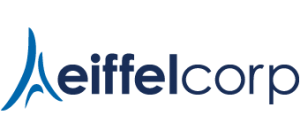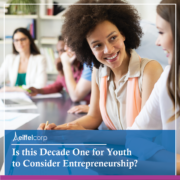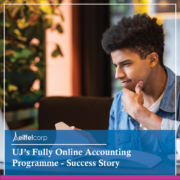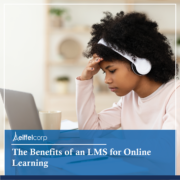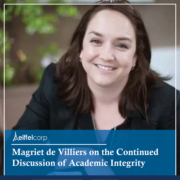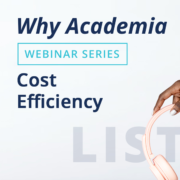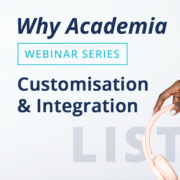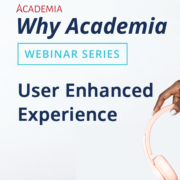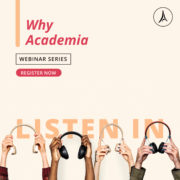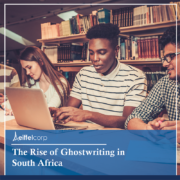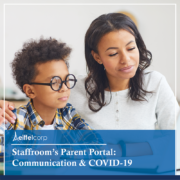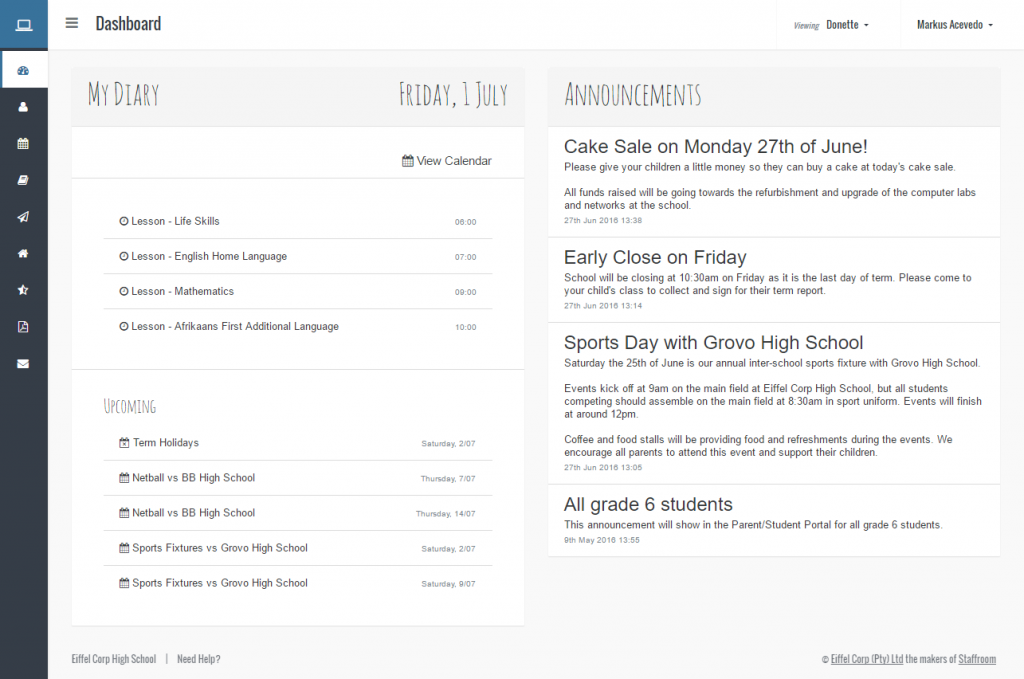Why Academia SIS: Enhanced User Experience
Academia SIS is a robust, feature-rich, analytics-equipped and user-friendly Student Information System (SIS). This System is built on cutting-edge and flexible architecture. Besides the obvious advantages of an information system that is built on the latest technology architecture, it also boasts highlights that are integral to a best-of-breed system.
What Does Academia SIS Offer?
First off, Academia SIS offers a unified and integrated structure, which automatically means reduced data redundancy. The system ensures standardisation of processes for the relevant institution. It not only streamlines processes, but it also offers comprehensive access to all relevant information through one, easy-to-use interface. This interface allows for departments and faculties to integrate and collaborate easily. The system also comes with its own mobile app, making it easy to access any time, anywhere for all stakeholders involved. Furthermore, it is cloud-enabled, offering the institution an option to host on various server hosting cloud platforms provided by Academia.
The system is configurable too, which means the institution can adjust the system and its interface, to meet its unique needs, easily and at a low cost. One of Academia SIS’ unique features is that it has multi-centred capabilities. This indicates that the system is able to manage and report on multiple campuses and multi companies, efficiently. All parties involved can, therefore, base decisions on the information available for each specific context of a group.
Academia as a system, addresses the entire student life-cycle from application to graduation, with reporting enabled functionality for data gathered throughout the cycle. Academia also enables efficient communication with stakeholders. The system supports all actions with the tools to structure and organise all administration and rules.
So What Makes Academia User Friendly?
*Please scroll down for recording of our webinar session
The User Interface (UI) used to refer to the access a user had to a system. Over the years, this has evolved into a User Experience (UX), entailing the full experience a user has when interacting with the user interface. The UX needs to provide relevant and meaningful experiences to the user. Users will only become loyal and continue using the interface if they have a positive experience.
Furthermore, a meaningful UX aids your institution in defining the customer journeys of your product or in this case, system. In short, the”User experience encompasses all aspects of the end-users interaction with the company, its services and its products,” Nielsen Norman Group. The user experience is therefore not just about what stakeholders see when they interact with your institution’s system, but rather how they see your institution as a whole – services, programmes and products.
There are some industry principles that guide the design of a user-experience, these include the following:
- Make everything the user needs readily accessible
- Be consistent
- Be clear
- Give feedback (CRM enabled)
- Use recognition, not recall
- Choose how people will interact first
- Follow design standards
- Elemental hierarchy matter (maintain institution hierarchy with Academia SIS)
- Keep things simple
- Keep your users in control
Source: BJ Keeton, January 2019
Academia easily ticks all the boxes of these UX design principles.
Who Should Find Your Institution System’s User-Experience Satisfactory?
When it comes to a Student Information System, there are various stakeholders that access information via the system. Institutions, therefore, have to meet the needs of top/middle management, students, academic personnel, administrative personnel, parents/sponsors and regulatory bodies. All of these stakeholders need to have a positive experience with your institution’s SIS for it to be effective in communicating information and gathering data for reporting. The user-friendliness that is offered by Academia SIS, enables a positive experience. Users do not need in-depth knowledge of the system to access what they need. The reporting functionality of Academia SIS enables easy but accurate reporting – informing top management with insight to make decisions based on data.
Top and Middle Management
Academia SIS offers access to graphic views of data, in a consolidated and concise manner. Users can switch between different graph views to enable easy access to information that is simple to interpret – without having to do an in-depth search for data in the system. The Management Dashboard allows management to easily monitor data on a daily, weekly or monthly basis. This includes admissions, finances and so forth. To make this even more accessible, each dashboard can be set to meet the unique requirements of the user – in other words, aligned with the manager’s unique login or user profile. This customised experience follows through to reporting too. Academia offers controllers or button access to various formats of data reports. The user does not need any in-depth understanding of the system or the structure of the institution. The system processes data to report on what each user needs.
Students
Students will also use the system and it is therefore important that they too have a positive user experience. One of the first areas they would use would be the application portal. Here you as an institution can customise navigation, step-by-step, to suit your specific process. You do not need to adjust your process to suit the system, but instead, Academia SIS allows you to customise the application portal to follow your existing processes.
Academia SIS also has a student portal that allows students to monitor and analyse their own data, as well as communicate with the institution. This portal would, for example, reflect attendance (important for scholarship reporting for example), student fees and accounts, calendars and communication tools. This reduces admin resources from the institution’s side. The portal is also not device-dependent. Students can use laptops, smartphones or a tablet.
Students also have access to an Academia Application – that allows students with easy access to their portal information. This is included in the Academia System and no additional costs apply.
Academic Personnel
Academia SIS offers a Mobile Responsive Portal that allows lecturing staff to manage students, assignments and assessments from the convenience of their smartphones. The lecturer can also communicate with his/her students through this portal.
The communication allows access to an overview of all the various factions of the student from assignments, to marks to attendance, and then the option to respond to these focus areas with a message/communication via the portal.
Reporting is also simplified with easy data analysis options and various graphic output formats or views. This easy access to data gives lecturers a tool to answer important questions with ease – ones that have a great impact on the overall decisions made within an institution at different levels of management. Furthermore, the CRM allows lecturers to access all the information of one student in one place.
Administrative Staff
The configuration of screens is key when it comes to the user-experience for administrative staff. Staff do not have to understand the system to access information. The columns make it easy to sort information according to what you need. They literally have access to data at the click of a button.
Academia SIS allows various ways of adding and managing data, making the lives of administrative staff easier. The naming conventions in data entry fields are configured to your institution’s terms. This means the information is in the language your institution already uses. The system allows the user to remove or add information fields to simplify their view. This also applies to reporting – the user can drill down to the fields he/she would like to pull a report on, and the system easily pulls out the data required.
Screens or dashboards are set up to reflect all the information relevant to your institution and your reporting and compliance requirements. Furthermore, the view of data can also be at a higher level. Compare daily or weekly data to generate analytics that influences decisions made at the institution.
Academia SIS then offers communication with the relevant stakeholders. Data is accessed and then the CRM allows to send messages to relevant groups, with easily adjustable email templates. Academia also allows you to set up a clear menu structure that helps all administrative staff to follow relevant processes.
Parents and Sponsors
Mange parents and sponsors by setting up a portal where you choose what information is shared with these stakeholders. Academic, financial, share marks, communicate events or other information. This portal makes it easy for both parents or guardians to access information about students relevant to them.
This portal is part and parcel of the Academia System.
Regulatory Bodies: Compliance and Reporting
It is important to note, that the Academia SIS builds in the requirements for compliance and reporting within each country and system. We, therefore, investigate before implementation to ensure that reporting is built into your SIS from the start – making it easy for all stakeholders to be compliant with regulations.
Academia SIS, therefore, makes it easy to offer a user experience that is both relevant and meaningful for all stakeholders involved.
After a successful first ‘Why Academia’ webinar series, we are rolling out a second series on all the features that make Academia SIS a great option for your institution. Below is the recording of our first episode that covers the Enhanced User Experience. Webinar 1: Enhanced User Experience. Please join us for our next episodes on: Customisation and Integration; Technology and Hosting and Cost Efficiency. Register here for these sessions.
Eiffel Corp has been serving students and institutions over the past 22 years. We have offices in South Africa as well as the UAE, along with partners in East Africa and other parts of Southern Africa.

